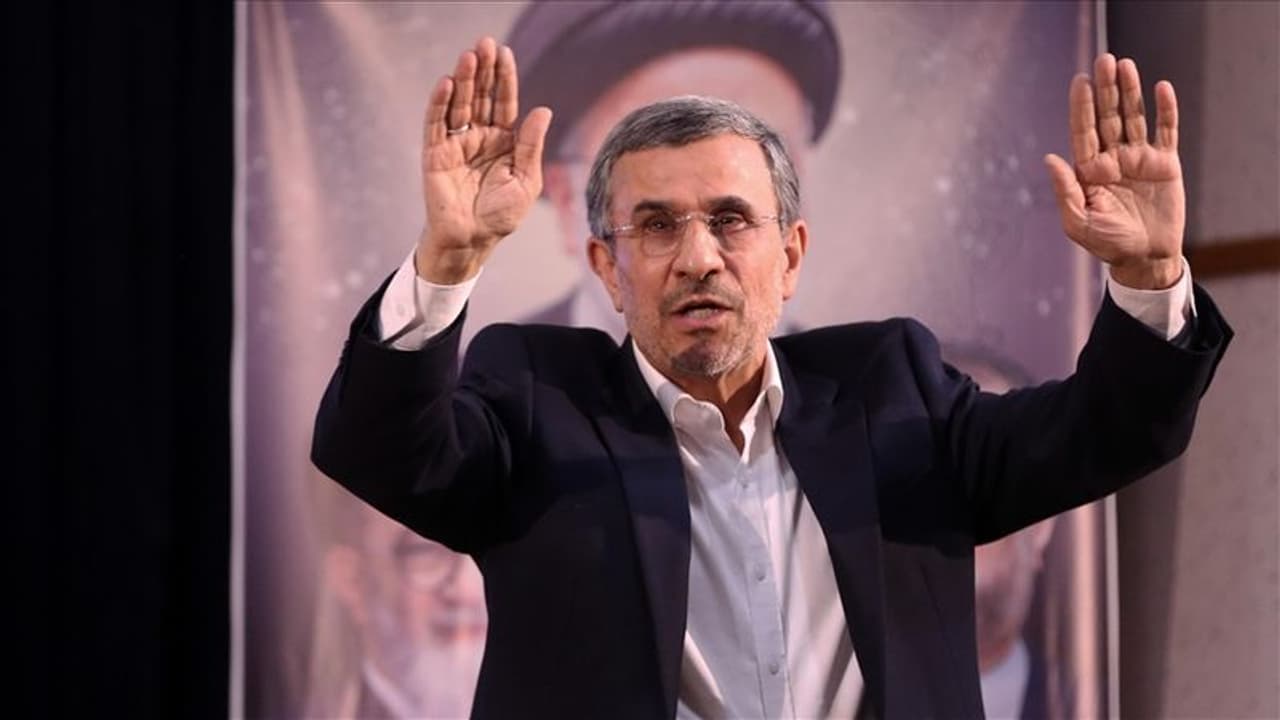Iran's Guardian Council on Sunday gave approval for the hard-line parliament speaker and five others to contest in the upcoming presidential election on June 28.
Iran's Guardian Council on Sunday gave approval for the hard-line parliament speaker and five others to contest in the upcoming presidential election on June 28. This decision comes after the tragic helicopter crash that claimed the life of President Ebrahim Raisi and seven others.

Once more, the council prohibited former President Mahmoud Ahmadinejad, renowned as a fiery populist who oversaw a crackdown after his contentious re-election in 2009, from participating in the race.
This ruling by the council marks the commencement of a condensed two-week campaign period to fill the vacancy left by Raisi, a staunch protege of Supreme Leader Ayatollah Ali Khamenei who was once considered a potential successor to the 85-year-old cleric.
The Guardian Council's approval of candidates, overseen by Khamenei, indicates Iran's Shiite theocracy aims to streamline the election process, especially given recent record-low voter turnout and heightened tensions surrounding Iran's rapidly advancing nuclear program and the Israel-Hamas conflict in Gaza.
The Guardian Council maintained its pattern of rejecting female candidates and individuals advocating for significant changes to the country's governance structure.
The upcoming campaign is expected to feature live televised debates among the candidates on Iran's state-run broadcaster. Additionally, they will utilize billboards and deliver stump speeches to support their candidacy.
As of now, none of the candidates have provided detailed plans, but all have pledged to improve the country's economic situation amidst sanctions imposed by the US and other Western nations due to Iran's nuclear program, which has now reached uranium enrichment levels closer to those suitable for weapons development.
Ultimately, decisions on such critical state matters rest with Khamenei, although past presidents have tended to align either with engagement or confrontation in relations with the West regarding the nuclear issue.
The leading contender in the upcoming presidential election remains Mohammed Bagher Qalibaf, aged 62, a former mayor of Tehran with strong ties to Iran's paramilitary Revolutionary Guard. However, Qalibaf's candidacy is overshadowed by his involvement in controversial incidents. As a former Guard general, he was implicated in a violent crackdown on Iranian university students in 1999 and allegedly authorized the use of live ammunition against students in 2003 during his tenure as the country's police chief.
Qalibaf previously ran for president in 2005 and 2013 without success. In 2017, he withdrew from the presidential race to endorse Ebrahim Raisi, who eventually won the 2021 election amid historically low voter turnout after other major contenders were disqualified.
Recent remarks by Supreme Leader Ayatollah Ali Khamenei hint at qualities in Qalibaf that his supporters have highlighted, potentially signaling the leader's endorsement for the speaker.
However, Qalibaf's past actions in crackdowns may be perceived differently in light of ongoing unrest in Iran, fueled by economic challenges and mass protests triggered by the 2022 death of Mahsa Amini. Amini, a young woman, died after being arrested for allegedly not adhering to the required dress code, sparking widespread outrage.
The Guardian Council has barred Ahmadinejad, the outspoken former president known for questioning the Holocaust. Towards the end of his term, Ahmadinejad's challenges to Khamenei escalated, and he is widely remembered for the violent suppression of the 2009 Green Movement protests. This is not the first time he has been disqualified by the council; he faced a similar decision in the previous election.
The upcoming election occurs amidst heightened tensions between Iran and the West, exacerbated by Iran's support for Russia in the Ukraine conflict. Additionally, Iran's backing of militia groups across the Middle East has drawn increased scrutiny, particularly as Yemen's Houthi rebels target ships in the Red Sea amid the Israel-Hamas conflict in Gaza.
The tragic helicopter crash on May 19 in Iran's far northwest claimed the lives of President Raisi, Iranian Foreign Minister Hossein Amirabdollahian, and others. Investigations are ongoing, with authorities stating that there are no immediate indications of foul play in the crash, which occurred on a mountainside shrouded in clouds.
Raisi's passing marks the second time an Iranian president has died in office; in 1981, President Mohammad Ali Rajai was killed in a bomb blast during the tumultuous aftermath of the Islamic Revolution.
